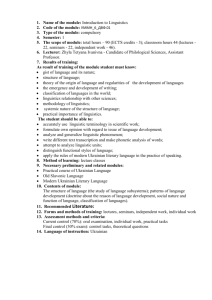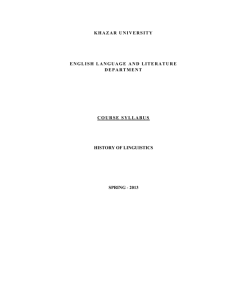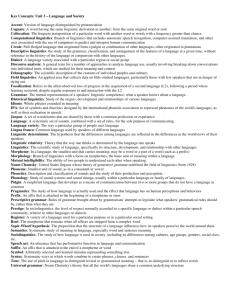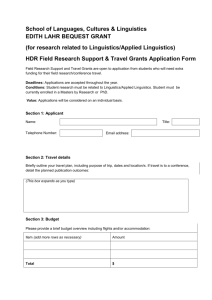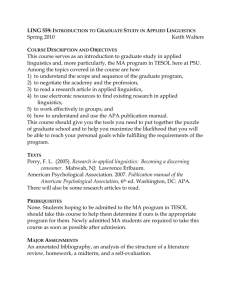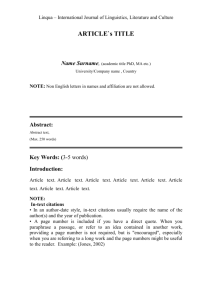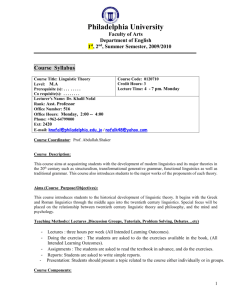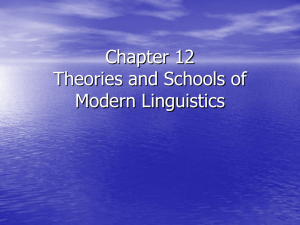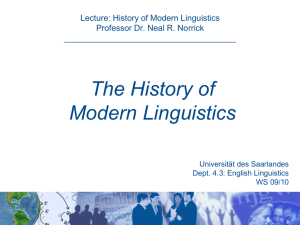ДВС Fundamentals of Functional Linguistics
advertisement
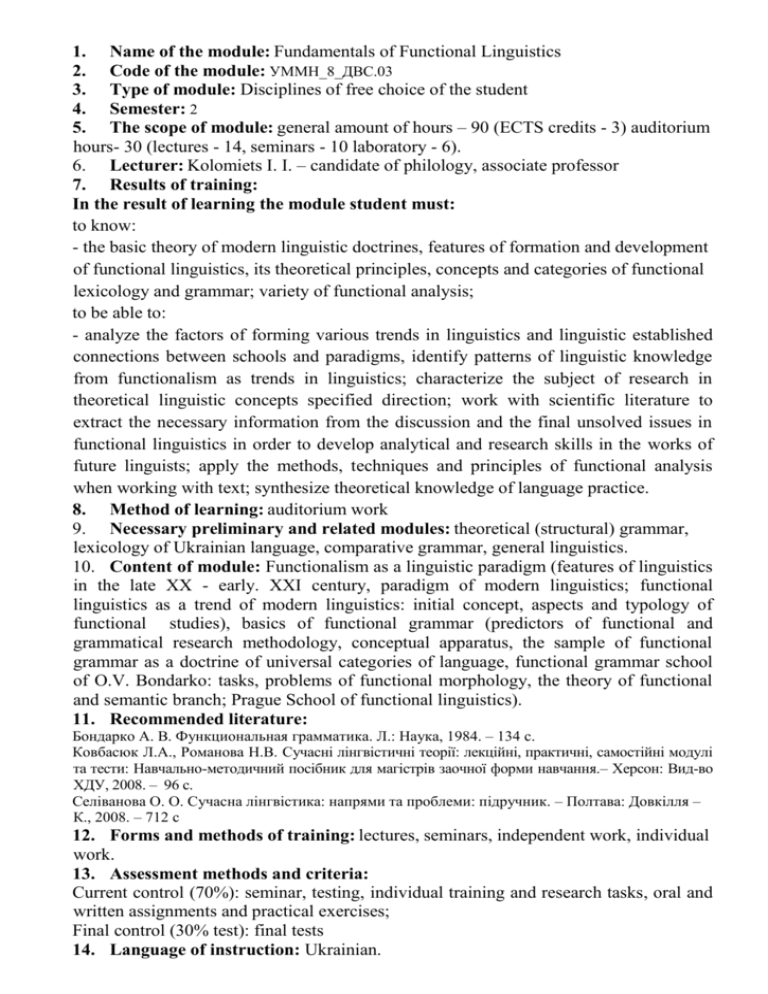
1. Name of the module: Fundamentals of Functional Linguistics 2. Сode of the module: УММН_8_ДВС.03 3. Type of module: Disciplines of free choice of the student 4. Semester: 2 5. The scope of module: general amount of hours – 90 (ECTS credits - 3) auditorium hours- 30 (lectures - 14, seminars - 10 laboratory - 6). 6. Lecturer: Kolomiets I. I. – candidate of philology, associate professor 7. Results of training: In the result of learning the module student must: to know: - the basic theory of modern linguistic doctrines, features of formation and development of functional linguistics, its theoretical principles, concepts and categories of functional lexicology and grammar; variety of functional analysis; to be able to: - analyze the factors of forming various trends in linguistics and linguistic established connections between schools and paradigms, identify patterns of linguistic knowledge from functionalism as trends in linguistics; characterize the subject of research in theoretical linguistic concepts specified direction; work with scientific literature to extract the necessary information from the discussion and the final unsolved issues in functional linguistics in order to develop analytical and research skills in the works of future linguists; apply the methods, techniques and principles of functional analysis when working with text; synthesize theoretical knowledge of language practice. 8. Method of learning: auditorium work 9. Necessary preliminary and related modules: theoretical (structural) grammar, lexicology of Ukrainian language, comparative grammar, general linguistics. 10. Content of module: Functionalism as a linguistic paradigm (features of linguistics in the late XX - early. XXI century, paradigm of modern linguistics; functional linguistics as a trend of modern linguistics: initial concept, aspects and typology of functional studies), basics of functional grammar (predictors of functional and grammatical research methodology, conceptual apparatus, the sample of functional grammar as a doctrine of universal categories of language, functional grammar school of O.V. Bondarko: tasks, problems of functional morphology, the theory of functional and semantic branch; Prague School of functional linguistics). 11. Recommended literature: Бондарко А. В. Функциональная грамматика. Л.: Наука, 1984. – 134 с. Ковбасюк Л.А., Романова Н.В. Сучасні лінгвістичні теорії: лекційні, практичні, самостійні модулі та тести: Навчально-методичний посібник для магістрів заочної форми навчання.– Херсон: Вид-во ХДУ, 2008. – 96 с. Селіванова О. О. Сучасна лінгвістика: напрями та проблеми: підручник. – Полтава: Довкілля – К., 2008. – 712 с 12. Forms and methods of training: lectures, seminars, independent work, individual work. 13. Assessment methods and criteria: Current control (70%): seminar, testing, individual training and research tasks, oral and written assignments and practical exercises; Final control (30% test): final tests 14. Language of instruction: Ukrainian.
